The Love Doesn’t Stop
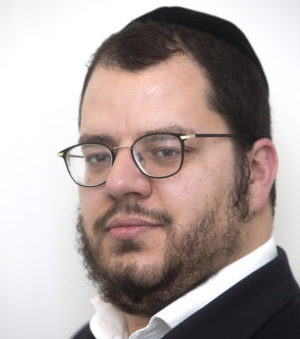
While many families in this "club" cringe from exposure, Rav Shimon Schneebalg has put his own shame and discomfort on hold, and gone public
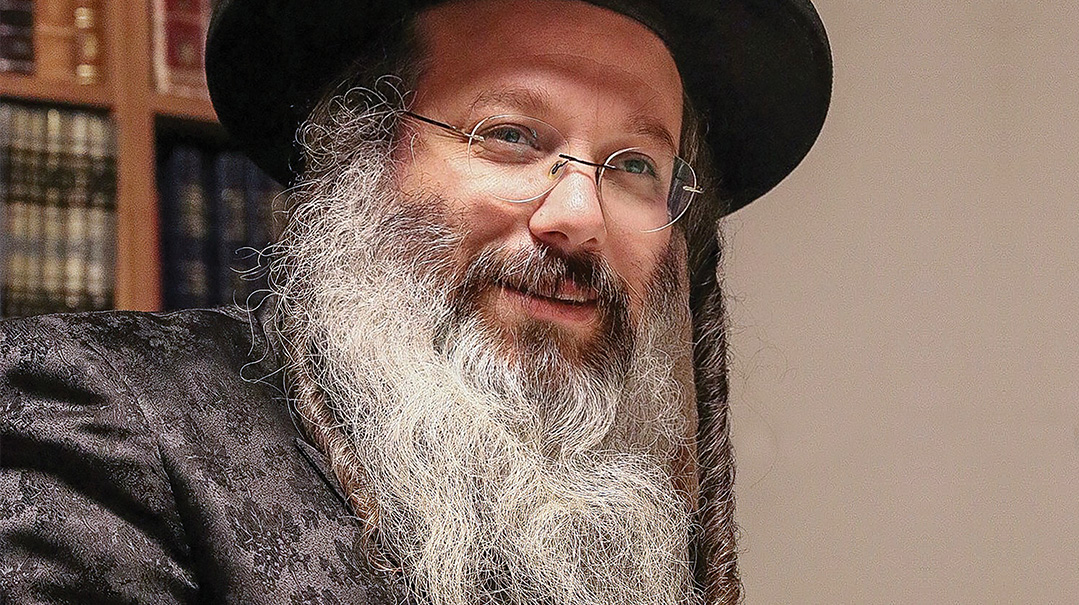
Photos: Tzvi Miller, JDN
It’s the club no one wants to join, even though membership is free and growing, gaining unlikely members from the most insular, sheltered, and “choshuve” families. One new member is Rav Shimon Schneebalg of Bnei Brak, a chassidic mashpia and a chinuch advisor, son of the Zidichoiver Rebbe of Bnei Brak (known for decades as a baal mofeis), and son-in-law of the Stropkover Rebbe of Jerusalem. But this club makes no distinctions — not about yichus, wealth, or influence. Parents with children who’ve left Yiddishkeit know that the pain crosses all sectors.
While many families in this club cringe from exposure, Rav Schneebalg has put his own shame and discomfort on hold and has gone public, in order to spearhead a shift in the collective thinking and to make it easier for parents who are struggling in this area.
“We are a very judgmental society,” I remark when we sit together for a wide-ranging conversation about unconditional love, about unfathomable pain, about sleepless nights, about hope and acceptance. “Aren’t you afraid of the embarrassment, of what people will say?”
“Embarrassment?” he said, holding my gaze. “Bushah is a human condition, I won’t deny it’s not there. I just have to remember I’m just a shaliach of HaKadosh Baruch Hu and now, this is my place: to hold the pain and move forward with love and acceptance. And that my pain will generate benefit to other families and other children. My job right now is to do everything possible to make sure people don’t repeat one of the most common, most critical, and most tragic mistakes that we see every day: because alienating oneself from a child that you brought to the world is the greatest embarrassment.”
He makes a shehakol and sips from the cup of tea. It’s not an easy conversation for him. This wasn’t the trajectory his life was supposed to take. Still, he composes himself and continues.
“Chezky, who recently turned 25, was a beloved child with a good head and good heart. Last year, HaKadosh Baruch Hu gave me a tremendous challenge, a very difficult ‘gift.’ My Chezky, the light of my life, whom I waited a few years for, a zisse kind, a getrayer kind, a geshmacker kind (a sweet, loyal, and pleasant child) informed me that he was totally cutting off from a Torah life.”
For a moment, it sounds like a eulogy.
Chezky, a shtark chassidishe bochur with black knee socks who never even removed his hat during the day while he was in yeshivah, married young (as do most rebbishe eininklach), had two children, and then, it doesn’t matter why, he fell into a downward spiral and his life went haywire.
“The first blow was the divorce. And then one day, after the marriage fell apart, Chezky came to me and said, ‘Tatty, I’m leaving it all.’
“Chezky was ready for the worst — he expected me to tell him that from that moment on, our relationship would be over, that I wouldn’t want to hear from him anymore. That I wouldn’t want to know him. That I would sit shivah for him.
“Yet with the kochos the Ribbono shel Olam sent me at that moment, I did perhaps the hardest thing in my life — I gave him a strong, powerful hug and said to him, ‘Chezky, I love you just like I have loved you until now. My love for you is not stopping. It never stopped and never will.’
“Chezky was stunned. ‘Tatty, how can you still love me? How does that make sense? I’m going to cause you so much distress. I’m going to do things that embarrass you. I’m going to put you through a very hard time.’
“And I replied, ‘My dear Chezky, when you were born, you also had no yarmulke, no tzitzis, no tefillin. I loved you then, and that love continues. It’s the same love.”
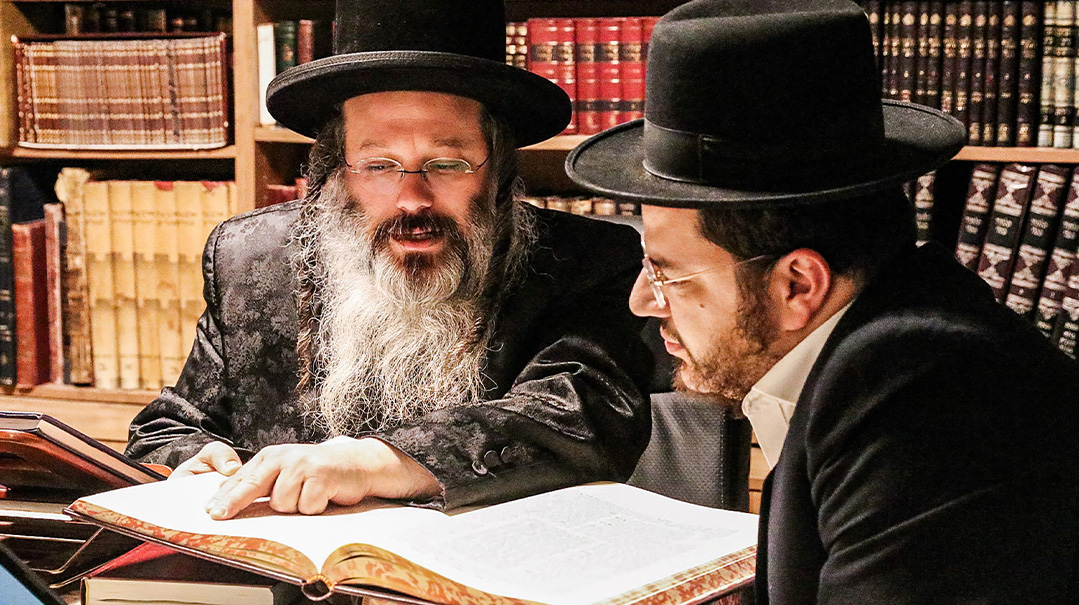
Rav Schneebalg with Mishpacha’s reporter. While many families in this club cringe from exposure, he put his own shame and discomfort on hold and has gone public in order to spearhead a shift in the collective mindset
Rav Schneebalg admits that the parameters of his new relationship are not easy. “My heart is torn to shreds. I don’t deny it — my wife and I don’t sleep at night. For parents who raised their child to Torah and yiras Shamayim, for a mother who stands each Erev Shabbos at the candles and asks ‘Vezakeini legadel banim ubnei banim oskim b’Torah ub’mitzvos,’ and for a father who davens in front of the Chanukah licht with tears uttering ‘veyihiyeh zar’i vezera zar’i talmidei chachamim v’chassidim…’ there is no bigger pain than this.
“But,” he hastens to emphasize, “that pain is not connected in any way to the love, and does not dull it. My love for Chezky is complete, unconditional, without asterisks. And more than that, without expectations. It’s the unconditional true love of parents to their children who they brought to the world. Being a parent doesn’t stop, and neither does the love stop.
“Chezky gave us a very hard test. But he’s seen one thing: No matter what would happen, we love him.”
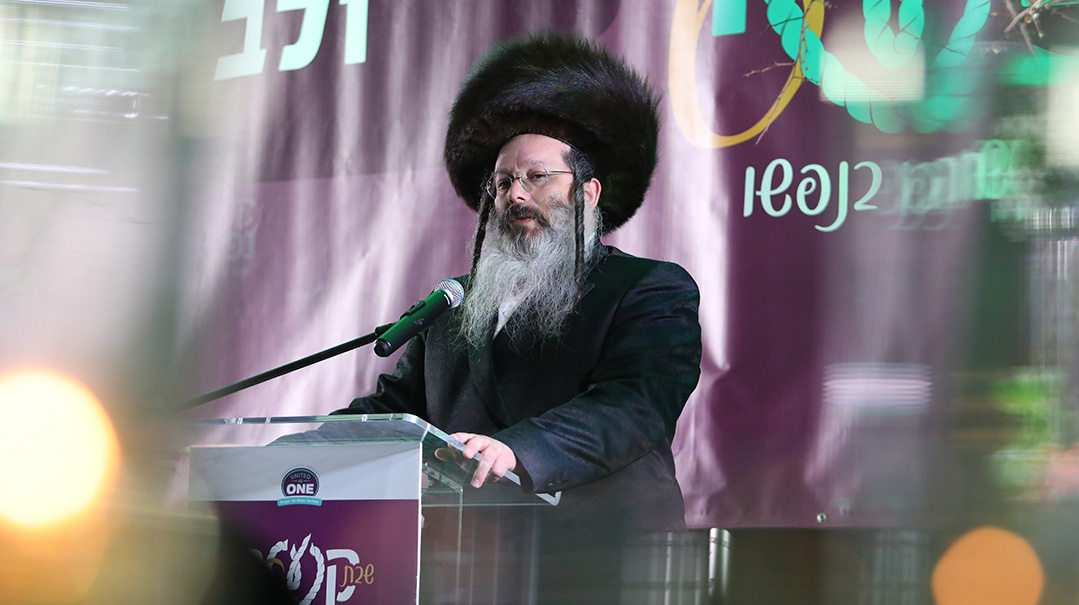
At the Kesher Nafshi shabbaton. “I realized that what parents can give their children, a dozen therapists can’t give”
He’s Relying on You
Rav Schneebalg’s courage to speak about the elephant in the room of chareidi society, without any effort to whitewash the harsh reality is a lifesaver for hundreds of parents — chassidish or otherwise — who are struggling with similar situations and find themselves groping in the dark and perhaps making mistakes. Given the closed, strict rebbishe framework he comes from, he says it’s the bravest public step he’s ever taken.
A few years back he was giving a series of chinuch lecture in the US, and told an audience of parents of struggling kids, “Hashem is relying on you because He trusts you. Baruch Hashem he’s not relying on me.” That was five years ago. This past January, he was back as a speaker at the Kesher Nafshi shabbaton for parents with struggling children, when someone showed him a clip he’d taken of the previous lecture. “Now,” the fellow told Rav Schneebalg, “he’s relying on you too.”
“In Shamayim, they wanted to see how serious I was until now,” he says. “For years, I’ve been working with parents facing various chinuch crossroads. Sometimes parents would challenge me, ‘It’s easy for you to give advice, because you’re still sleeping at night. If you would be dealing with a similar situation, you probably wouldn’t even implement your own advice.’ Now that it’s at my doorstep, I understand them in such a different, more profound and nuanced way.
“And I realized something else: I realized that what parents can give their children, a hundred therapists can’t give. A father and mother can be more effective than a dozen chinuch advisors. If we give our child his place — everything looks different.”
With all the platitudes of love and acceptance, one of the hardest things about the new rules of the relationship was rebuilding trust. Chezky had trouble believing his parents’ love was genuine — rather, he assumed it was one of those “do it and you’ll see a difference” campaigns the therapists and askanim advise.
“He was pretty sure that very soon, the idyllic portrayal would fade and we’d start to fight,” Rav Schneebalg admits. “But a month passed, and then many more, and it didn’t happen. Meanwhile, I traveled with him to New York, and we continue to give him what he needs. The fact that I have expectations that he should be an erlicher kind, a yarei Shamayim, and that these expectations still exist, doesn’t contradict the natural love.
“It’s vital for parents to be able to make the separation, to make sure the pain and the anger don’t overshadow the love. Chezky is also in pain, he’s also struggling. I don’t ask him where he goes on Shabbos. I just ask, do you have food? Do you have where to sleep? Do you have what you need? When he comes home, he gets what he needs, even if he doesn’t ask. He knows one thing — our hearts are open for him, with no limits.”
If there is one overarching piece of advice to give parents, Rav Schneebalg says, it’s to remain positive. “It’s the first and last rule. Show him that you love him, that you still value him, find the positive things within him and stay focused on that — you might see surprises and you might not, but wishing away a difficult situation won’t change it in any case.”
Rav Schneebalg acknowledges that many parents whose children have chosen a different path want to maintain a positive relationship, want to love unconditionally, but are afraid to keep the child home for fear that he’ll have a negative influence on the others. From his experience, though, siblings coming from a loving, healthy environment don’t generally see the struggling sibling as finally having an amazing life.
“My little eight-year-old son told my wife, ‘Mommy, I understand that this is a derech he chose, but I don’t want that derech. I don’t want to be like him.’ To me he said, ‘Tatty, now I see you really love me.’ I asked him how he knows this and he replied, ‘When I see that you love Chezky even though he became chiloni, it means you love me because I’m your son, and not for any other reason.’
“Of course, Chezky is no dummy, and understands that we in no way approve of his current lifestyle. He says to me, ‘Tatty, I know you don’t like my way, I know you probably think I ruined my life.’ But a few of his friends recently met me and said, ‘We’re jealous of Chezky, he has a healthy nefesh.’ I won’t deny that in every Shemoneh Esreh, I say a special tefillah that Chezky should come back. But I still shower him with love, not so that he should come back, but because he’s my child, just as we are all Hashem’s children even as we’re constantly falling.”
Some people would say that it sounds like manipulative love.
“But you know,” the Rav continues, “strategic, manipulative love is something that can maybe last a few weeks, a month, but it can’t endure long term. You can’t fake love for the long term. When you have a knife in your heart, when you don’t sleep, don’t eat, then the internal true love is the only love that endures. And I’ll tell you something else: In general, children who grow up in a loving home will never do something just to make the parents angry. They may stumble and fall, they may deteriorate, they might do things that are self-destructive, but it’s usually not about being out to get their parents. When Chezky comes here for Shabbos, he is careful and respectful.
“Yet when a child is thrown out of the house, even though there are wonderful individuals and organizations out there to intervene and care for him, the kid is still busy with his pain and his estrangement — he’s mourning, angry, and out for revenge. And what does he do as a result? He seeks to draw more young people out, to drag along as many friends as he can, and looks for other ways of revenge against his family and his community.
“I want to share a story with you: The holy Rebbe, Rav Chaim of Chernowitz zy”a, author of Be’er Mayim Chaim, had a rebellious son who left the path. Each night, the son went to taverns, partied with drunks and other lowlife figures. The Be’er Mayim Chaim went to the tavern each night, went over to his son, and kissed him on the cheek.
“People asked him, ‘How does the Rebbe do this?’ And the Be’er Mayim Chaim replied, ‘When HaKadosh Baruch Hu sees how I love my son despite his situation — He sees it and loves all His children this way, even when they stumble — I draw down from Shamayim a new love for Klal Yisrael, with the help of the love that I am showering on my son even when he sins.’
“In fact, Chezky always says to me, ‘My problem is that you really love me. Otherwise, it would be much easier… If it would be fake, I would know it.’ One Shabbos, we were together, the whole family, at the Rebbe, and Chezky was also invited, of course. There was another ‘rebbishe kind’ there who’d also left the path, and whose parents had sent him away. He didn’t look very good, his dress and behavior obviously rebellious. My son was respectful, he was dressed nicely. Someone said to me, ‘Despite his spiritual situation, your son has a healthy nefesh. You can see that he grew up as a soldier of Hashem.’
“Chezky even sends young people at the crossroads my way, in order to help them maintain the connection with their families. I told him, ‘Chezky, I don’t know why you got to this place, but even now, when you’re in a situation that I’m very not pleased with, to say the least, you have a mission from Hashem.’”
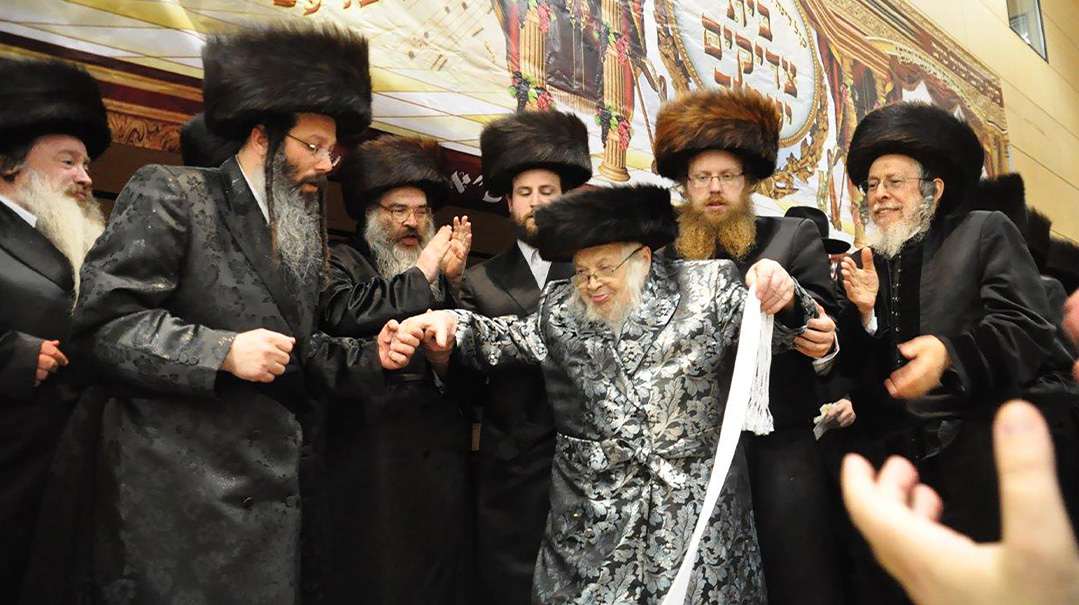
Generations at a family simchah. Rav Shimon (left) and his father-in-law, the Stropkover Rebbe (right) are honored with a mitzvah tantz by the Rebbe’s father-in-law, Manchester gaavad Rav Menachem Mendel Schneebalg (brother of Rav Yeshaya Schneebalg) ztz”l
No Fighting
One of the most important influences in Rav Schneebalg’s young life, growing up among 16 siblings in a busy house where people of all stripes would come to his father for yeshuos, was his zeide, Rav Yeshaya Schneebalg ztz”l, rav of Moshav Bnei Re’em for many years and then head of the Machzikei Hadas beis din of Belz, who passed away in 2002. His first wife, a daughter of the Zidichoiver Rebbe Rav Shalom Eichenstein, passed away when Rav Yeshaya was just 33 with four small children: the future Toldos Avraham Yitzchak rebbetzin, Rav Chaim Meir Schneebalg — the Zidichoiver Rebbe of Bnei Brak, the Zidichoiver Rebbe of Be’er Sheva-Boro Park, and the Zidichoiver-Beit Shemesh Rebbe a”h.
“My grandfather married again, and had four more children,” says Rav Schneebalg, “but his life was filled with challenges, a real pekeleh, yet he was always full of Torah and full of joy and love for his children, without a drop of bitterness. I still feel his love washing over me, and growing up in such a busy, hectic home, his love became one of my biggest anchors in life — he taught me to love Torah, to love Hashem, and to want to pass it on.
“My zeide used to tell me how the melamdim after the Holocaust hit and punished because they’d suffered so much — and I experienced a tough hand as well. But Zeide taught me a different approach. He would tell me, ‘You want to get to ahavas Torah? On Shabbos, Yom Tov, on any day off — learn something more, in addition to what you are learning in yeshivah, something that is enjoyable for you to learn. Because if you learn only what you must learn in yeshivah, that will just make you pressured. Independent learning will bring you to a love of learning.’
“His approach to chinuch inspired my own direction in life. I decided early on that when I grew up, I would be a mechanech and infuse children with that love. And indeed, a short time after I married, I said to my rebbetzin: ‘I’m thinking of leaving kollel and going into chinuch. And she said: ‘Don’t do it tomorrow, do it yesterday.’”
Since then, he’s been through all the ages and stages. He started out teaching kriah, eventually moving up to higher grades, teaching Mishnah and Gemara, eventually becoming a maggid shiur in a yeshivah ketanah and then in yeshivah gedolah, as well as a sought-after lecturer.
He tries to bring his chinuch proficiency to his own children, and especially to the challenge his family is currently facing. “A father needs to know to be mechanech, not to fight,” he says. “A father who decides to go to war against his child is not a mechanech, he’s a combat soldier. Chinuch means explaining, conveying messages in a pleasant way, not chasing, not pleading, and certainly not fighting. If the father gets into a fight, then the child instinctively wants to fight back — and begins to hate Yiddishkeit, which is the worst thing. A father who loves his children and accepts them as they are is actually telling them, ‘HaKadosh Baruch Hu loves you.’ But a father who fights his kids gives the impression that HaKadosh Baruch Hu is also fighting his children.”
Rav Schneebalg says his father, a mekubal known for breaking spiritual barriers who has helped so many of the down-and-out over the years, taught him about empathy, about being acutely aware of the needs of others around you.
“My father would tell me, ‘Do you need a cup of water? Notice that someone else next to you needs a cup of water. Do you need to eat? Someone else around you also needs to eat. Don’t be an egoist. The same is with your tefillos: Think of another, do something for another.’ And the same is true with chinuch in general and my own situation in particular. Because if a child came to This World, he’s here for a reason, and that job doesn’t end when he decides not to follow a Torah life.
“I have a very chashuve father-in-law, the Stropkover Rebbe, Rav Avraham Shalom Yissachar Dov Lifshitz Halbershtam” he continues. “For the past 50 years he has lived in Kiryat Moshe — not a chassidish neighborhood and not even chareidi — because that’s where they need him. They migh not be wearing shtreimels on Shabbos, but he showers them with warmth, Torah, and chassidus. Because he’s always thinking of them, and not himself.”
Rav Schneebalg goes over to the bookcase and pulls out the sefer Tomer Devorah by Rabi Moshe Cordovero zy”a, a classic exposition on Hashem’s Thirteen Attributes of Mercy and how the entire universe operates in response to man’s deeds, how heaven and earth influence one another whenever we emulate these attributes.
“This is my basic sefer in life,” he says. “Since my bar mitzvah, I’ve learned it hundreds of times — with chavrusas, listening to shiurim from others. When you really delve into the middos, you look at everyone differently. You learn that every person you encounter is your mirror. Have you ever seen a perfect person?
“When I see a Yid who sins, it means Hashem has sent me a message: ‘Just like I am quiet when you stumble — you should also be quiet. How often do I keep quiet for you?’ It says in Tomer Devorah that Hakadosh Baruch Hu is a ‘Melech ne’elav,’ He absorbs so much insult that we cannot fathom. There is nothing concealed from His oversight, without a doubt, and there isn’t a minute when a person is not being sustained by Him… yet a person uses that power, that life-force he’s been given, to sin — and yet Hashem does not withhold it from him. Rather, HaKadosh Baruch Hu absorbs the insult and continues to infuse the person with strength. This is why the malachim call Hashem ‘Melech Aluv — Hashem, You have the power to take revenge, and yet, You tolerate and absorb unlimited insults waiting for the person to repent.’ This is a middah that a person should adopt for himself.”
Emulating Hashem’s middos, of course, is not really a problem when poring over the sefer, but is it really translatable to the harsh and painful realities of life?
Every bochur between the ages of 13 and 20 has faced various challenges, the Rav says. “The question is in whose hands he falls into: a genuine mechanech or a shochet.
“I can’t say I’m always successful — sometimes your student, or your child, brings you to the brink of your tolerance level. But when you review these ideas over and over, and there is awareness, then you’ve gotten to the first step,” he says.
“From soon after our wedding,” he continues, “we had bochurim of different types staying in our house. There was a boy from America who slept in my house for three years straight and although I did speak to him about menschlichkeit, about cleanliness, about relating to others nicely, he never heard from me a word about Yiddishkeit. He had a heavy history. His tefillin accumulated dust. He would go to sleep at five in the morning and get up at five in the evening — in the winter it was after shkiah. And I kept quiet.
“This fellow now lives in Eretz Yisrael and I met him recently. He told me, ‘I put on tefillin today because for three years you didn’t say a word to me.’
“Look, every child has his own private journey and we parents have to realize that even if we can sometimes say it’s about us, blame is a harmful, unproductive headspace to be in. The bottom line is that Hashem knows and not me. What we can do is cultivate the love that begins at birth. I have a friend going through the same thing. We commiserate with each other, and what do we do? We sing Ani Maamin together — ‘Hu asah, oseh veyaaseh kol hamaasim…’ And that’s the only thing that can really strengthen us. Chezky is in Hashem’s Hands, Hashem, the Melech Aluv…
“And my job right now is to love him unconditionally, so that when the time comes, b’ezras Hashem, he’ll have a place to return to. If we keep the door closed, we have no chance. If we leave the door open, great things can come back inside.”
(Originally featured in Mishpacha, Issue 907)
Oops! We could not locate your form.







